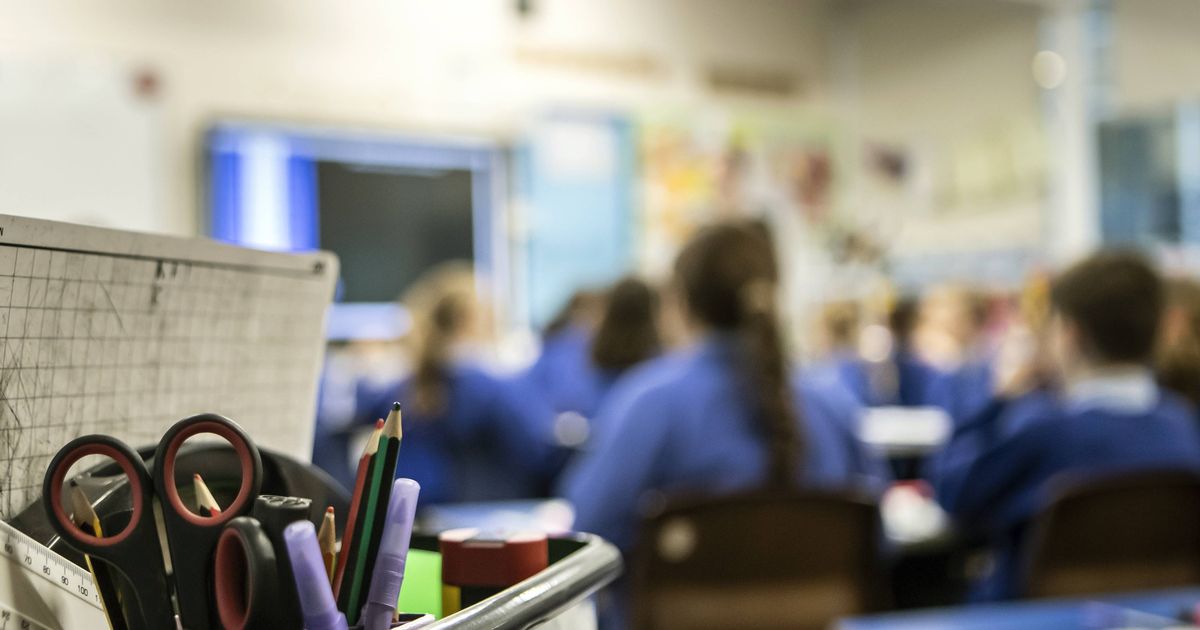The leader of a headteachers’ union is urging ministers to tackle the “excessive” costs of holidays during school breaks
Some parents see school as “optional” following the Covid-19 pandemic and fines for unauthorised absences are “not reversing” that trend, according to the leader of a headteachers’ union.
Pepe Di’Iasio, the leader of a headteachers’ union, is set to say some families now view school attendance as “optional” post-pandemic, and that fines for unauthorised absences failing to curb the trend. Speaking at the Association of School and College Leaders (ASCL) annual conference in Liverpool on Saturday (today), Di’Iasio will argue that penalties for parents who take their children out of school without permission can “often deepen tensions” with families.
In his address, Mr Di’Iasio will urge ministers to collaborate with the travel industry to tackle the “excessive” costs of holidays during school breaks.
These remarks come as a recent ASCL survey indicates that 93% of state school teachers and leaders have encountered instances this academic year where pupils were absent because their families opted for a holiday during term time.
READ MORE: Mum taken to court after going on holiday with her children during school term-time
The survey, conducted by the Teacher Tapp app, questioned 9,127 teachers and leaders across England about pupil absences they’ve encountered this year.
Findings reveal that over four-fifths (81%) of respondents reported students missing school for family events, while 74% noted absences due to school-related anxiety. Additionally, 61% mentioned pupils staying home because they were tired after a previous night’s event, and 36% cited disputes between parents or carers and the school as a reason for absence.
Furthermore, the poll found that around one in eight (13%) educators had been informed of students wanting to work online from home instead of attending school.
In September, fines for school absences in England were increased from £60 to £80, with a subsequent fine for the same child within three years now set at £160.
The hike in fines was announced by the previous Conservative government in February last year as an initiative to improve school attendance post-pandemic.
During his speech at the union’s annual conference, Mr Di’Iasio will say: “We all know something changed in society after the Covid-19 pandemic.
“I can’t pinpoint exactly why, but for some families, school seems to have become – at least in part – optional. And that mindset persists.”
Mr Di’Iasio will also say that “the blunt instrument of fines is not reversing this trend.”
Penalty notices issued to parents in England for unauthorised school absences soared to nearly half a million (487,344) in the 2023/24 academic year, with the majority (91%) being for unauthorised family holidays.
Mr Di’Iasio will discuss how “fines often deepen tensions between schools and parents” and result in schools “are left looking like the villains”.
Addressing hundreds of school and college leaders on Saturday, he will propose: “It’s time to refresh and renew the social contract with a declaration agreed and developed by schools, government, and parents working together.
“This means setting out clear expectations, the importance of following the rules for the collective good, and the proper channels for complaints.
“Such an agreement should be developed, endorsed, and promoted by everyone with a stake in education. We need to speak with one voice.
“I want to address the increasingly strained relationship between schools and some of our parents.
“When I speak to colleagues across the country, many tell me they feel under siege from a growing culture of complaints.
“These grievances aren’t just directed at schools – they’re escalated to Ofsted, the Teaching Regulation Agency, the Department for Education, and local authorities.
“And if that weren’t enough, they are often amplified on social media, adding further pressure to already overstretched staff, who feel unable to respond.”
Professor Becky Francis, chair of the Government’s curriculum and assessment review, will also take the stage at the ASCL conference this Saturday.
In her Friday speech to school and college leaders, the Education Secretary highlighted the urgent need for schools to “catch up fast” in enhancing pupil attendance rates.
Bridget Phillipson expressed concerns that some schools were lagging in tackling absenteeism and emphasised the need for “old-fashioned graft”.
Speaking at the conference in Liverpool, Ms Phillipson conveyed her refusal to overlook the “damage” inflicted when children miss out on their schooling.

